Can diabetics have hair transplant?
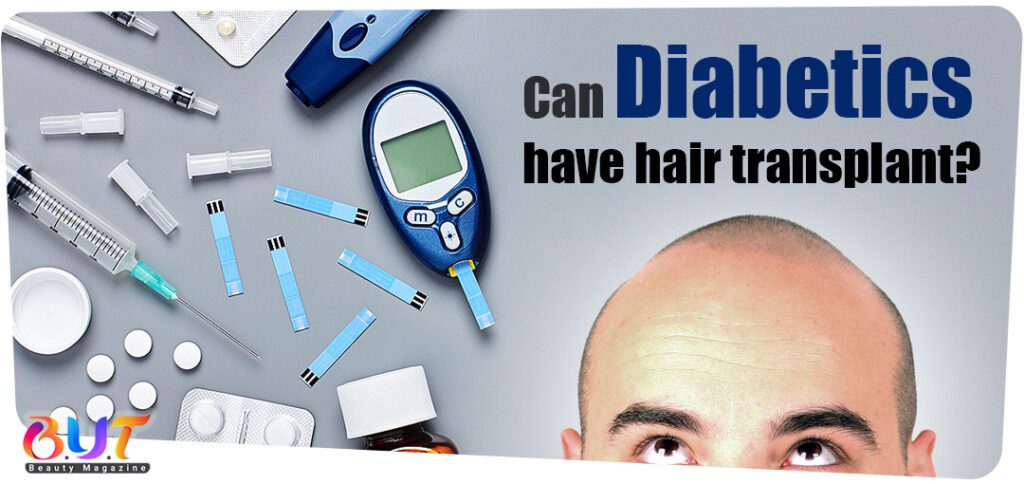
Most people think that hair transplantation is not possible for diabetics and ask Can diabetics have hair transplant? In the following, we will explain that this misconception is wrong and that hair transplant methods can be used in diabetic patients too. But there are fundamental differences between the implementation of this method in normal and diabetics.
If the person's disease can be controlled, the conditions are ready to use all kinds of implantation methods. Knowing the main causes of hair loss in these patients will be effective in treating this problem. Experts recommend that diabetic patients be under special care before, during and after operation. In addition to disease control, this care prevents damage to transplanted follicles.
text of video
diabetes day so on the occasion of this day I want to say that you have to take care of your diabetes and the treatment of diabetes is not only the medicines okay the treatment of the diabetes the first treatment of the diabetes is a good lifestyle okay.
so if you have the diabetes you can go for a good workout diet control is more important for you okay and extra skin care is very important.
many people they are asking doctor I have diabetes can I go for the hair transplant or not so if you have the diabetes then you have to control your diabetes okay and any kind of other Associated conditions OK like in kind of kidney problem any other problems is there in your body then definitely you have to treat that once your body is healthy once your sugar level is quite okay normal then definitely you can go for the hair transplant.
some people they have kind of a little bit extra complications can be happen okay didn't hair transplant or after hair transplant so Extra Care is needed during hair transplant and after hair transplant also okay so hopefully you will control your diabetes very well and once your sugar level and diabetes is quite okay cut controlled definitely you can go for the hair transplant thank you
What is diabetes?
Diabetes or sugar disease is one of the most common diseases in the world, which has different types and severity. Two factors are directly involved in the occurrence of this disease, which are: disturbance in insulin secretion and disturbance in the process of glucose metabolism. In general, this disease can be divided into two types.


Type 1 diabetes: Type 1 diabetes is classified as an autoimmune disease. In these patients, the pancreas lacks the ability to produce insulin. Insulin production in these patients is very low or stops. Heredity and environmental factors are effective in the occurrence and exacerbation of this disease. Type 1 diabetes usually begins in adolescence.
Type 2 diabetes: In this type of diabetes, the secretion of insulin hormone from the pancreas is very low. In some patients, the immune system shows resistance to this hormone.
The age of getting type 1 diabetes is higher and people over 40 years old get this disease. There is a direct relationship between type 2 diabetes and unhealthy eating style, inactivity and overweight.
Diabetes and hair loss
Hair loss is a natural phenomenon, and most people lose between 50 and 100 hairs daily without realizing it. When the phenomenon of hair loss is out of normal state, the possibility of severe baldness and thinning of hair will increase.
Diabetes is an autoimmune disease that can disrupt the natural cycle of hair loss. In this disease, the blood sugar level of body is out of control. The increase and decrease of blood sugar causes gradual changes in body. One of problems caused by this disease is the increase in hair loss and disruption of its growth cycle, which disrupts the path of hair transplantation.
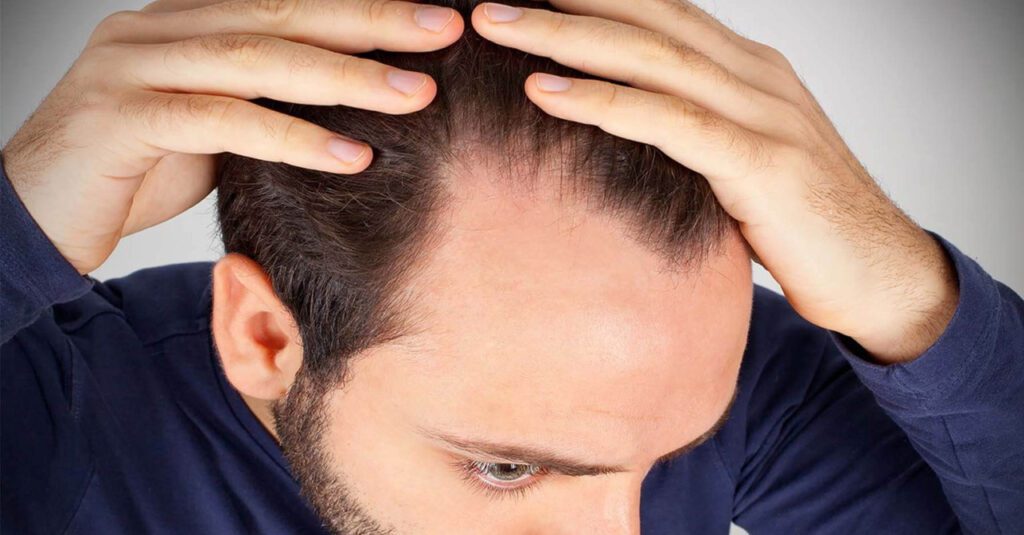
Factors that cause hair loss and growth cycle disorder in diabetic patients include the following:
- Hormonal imbalance.
- Lack of proper blood circulation.
- Failure to provide nutrients needed by hair follicles.
- Decreased oxygen delivery to follicles due to increased blood glucose levels.
- Stress caused by low blood sugar.
All hairs on body go through a constant growth and shedding cycle. Hairs on head and other parts of body form and grow in follicles. The follicle has a bag structure and is formed in the middle layer of skin. The follicle protects the hair bulb like a vase.
Each follicle produces 20 hairs throughout a person's life. Each hair grows for several years, eventually dies and is separated from body or head. After shedding each strand, the follicle prepares to produce the next hair. This cycle continues throughout life.
Is hair transplantation possible for diabetics?
Hair transplantation in these patients is not like normal people. The challenges and problems of this method increase the importance of pre- and post-operative care. In first step, the blood sugar and insulin levels of these patients should be controlled. In next step, a special measure should be taken to increase the healing speed of wounds and reduce recovery period in these patients.
If the main causes of hair loss in diabetic patients are not treated, there is no doubt that transplanted hair loss will continue even after transplantation. Don't forget that the method of hair transplantation in type 1 and type 2 diabetic patients is different from each other.
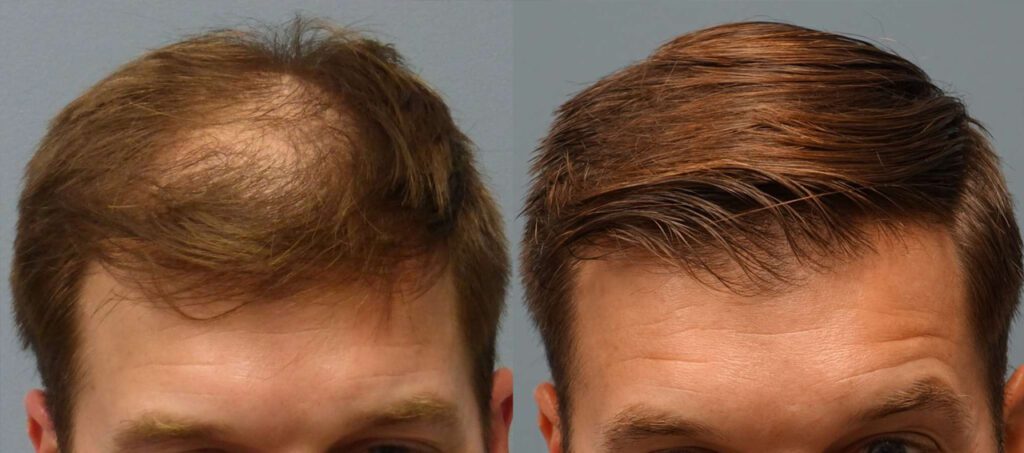
Hair transplantation in diabetic patients
Hair transplantation in patients with diabetes can cause serious health challenges. Very important factors such as the type of disease, its severity, drugs used, and duration of infection are effective in choosing method of implantation and its results.
The speed of wound healing in diabetic patients is longer than normal people. This can increase the recovery period. To reduce the recovery period in these patients, surgeons consider the use of special drugs and following special instructions to be best option.
One of serious challenges after hair transplantation in diabetic patients is the reduction of blood coagulation speed. It is recommended that these patients refrain from taking blood thinners or substances that reduce speed of blood coagulation for two weeks before and after operation.
Dos and don'ts of hair transplantation in diabetic patients
- The blood sugar of these patients must be completely controlled and be in a normal state for 20 days after operation.
- People who choose FUE method for implantation should monitor their blood sugar levels for about 7 days after operation.
- In people whose disease is uncontrollable, hair transplantation is very dangerous and it is better to use hair restoration method for these patients.
- The implantation procedure may take 4 to 8 hours. In addition to stress, prolonging operation increases the weakness of patient. Its consequence is a change in level of cortisol, insulin and growth hormone. It is better to check the patient's blood sugar regularly during operation.
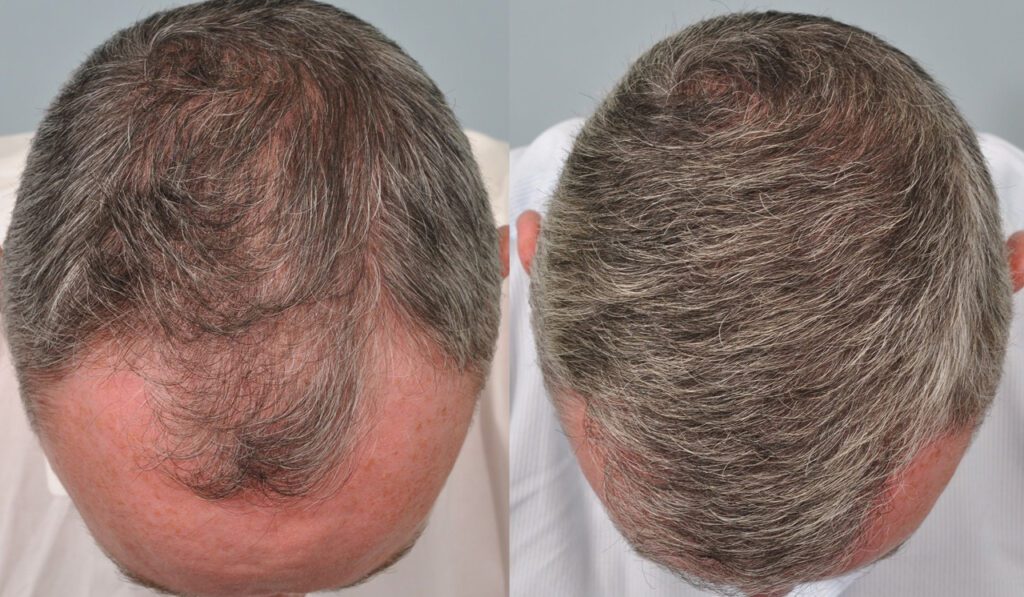
Hair transplantation is possible for which category of diabetic patients?
- People who have a history of hereditary diabetes but do not need to take insulin to control their disease, will be good candidates for hair transplant.
- Those patients who are able to control their diabetes by using diet and without medication can use implantation method to fix their low back or baldness.
Do not forget that two categories of diabetic patients cannot be candidates for hair transplant under any circumstances:
- Disease a/3, who need to take insulin in addition to taking medicine to control their disease.
- b/3 patients who are not able to control their blood sugar level if they follow diet and drug treatment.
Hair transplantation in patients with type 1 diabetes
Controlling blood sugar levels and speeding up wound healing process is one of the serious challenges in path of hair transplantation for these patients. Constant review of diet and medication of these patients is required to issue a license for implantation. During operation, the patient's blood sugar should be checked regularly.
Hair transplantation for patients with type 2 diabetes
If the blood sugar level of these patients is controlled, there is no problem for operation. This group of people will be the best option for hair transplant. It is possible to implement various implantation methods for these patients.
FUE method: In this method, transplanted grafts contain a follicle and are extracted from a specific area in donor area. After preparation, they can be transplanted to appropriate place. This method does not involve surgery, anesthesia, cuts and sutures. Most experts consider using this method as the best method for diabetic patients.
Micrograft method: Micrograft is the latest method of hair transplantation and is done using modern tools. Very high accuracy in harvesting transplanted follicles and their implantation is main advantage of this method. The lack of need for surgery and use of anesthetics makes this method an ideal option for diabetic patients. At the end of this procedure, there will be no scars and sutures in implant and transplant site.
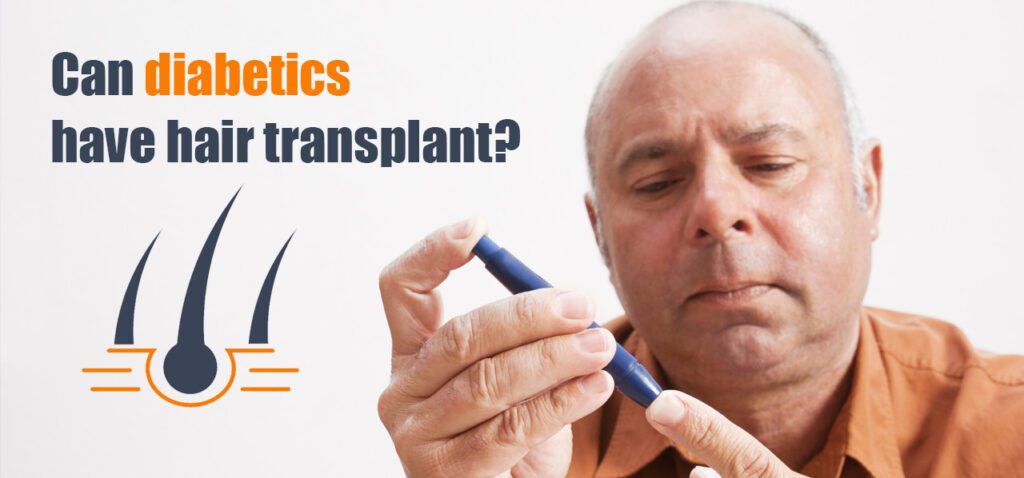
Hair restoration in diabetic patients
In patients whose blood sugar level is not normal and the symptoms of disease are not controlled, hair transplantation is not possible. If these patients suffer from baldness or thinning hair due to diabetes, they should use hair restoration techniques or HRT. In this method, artificial strands have replaced natural follicles. Artificial strands are often produced from natural polymers and are very similar to human hair in terms of color, texture and structure. The person's face will remain completely natural after hair restoration.
In first step, 100 simulated fibers are implanted on patient's head. If person's body does not show any allergic reaction to hair prosthesis, the main stage begins. Glue or clips are used to connect these hairs.
Clinical effects of hair transplantation in diabetic patients
Hair transplant takes between 4 and 8 hours. The extent of bald area and number of transplanted follicles are most important factors in determining operation time. Most patients face anxiety due to use of anesthetic drugs during operation. During hair transplant operation, the patient faces an increase in level of growth hormones, cortisol and glucagon. Its natural consequence is an increase in body blood sugar. Since the level of insulin production is very low in diabetic patients, they will need to receive insulin during operation.
Do not forget that injecting some insulin before operation does not have much effect in reducing hormonal changes during hair transplantation. To reduce the risk of surgery in these patients, regular blood sugar control is required.
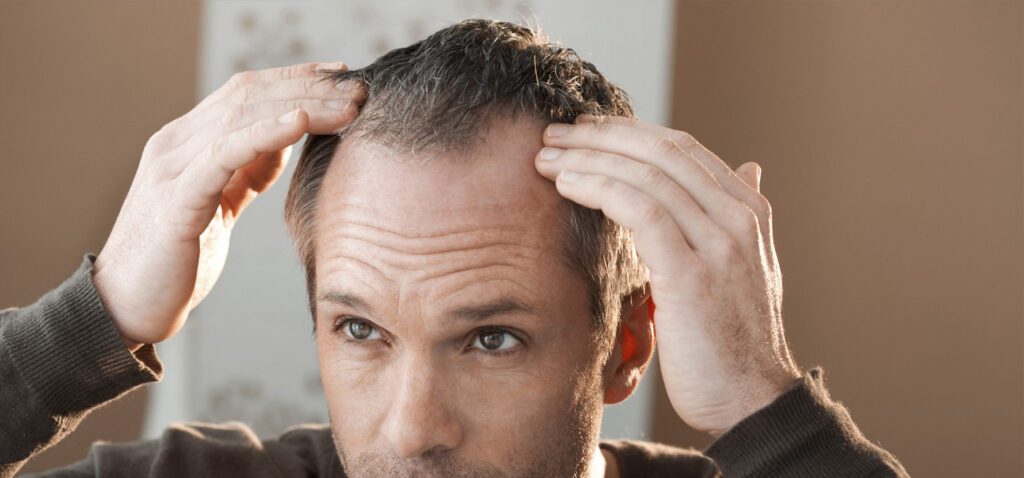
Complications of hair transplantation in diabetic patients
Most clients find it more appropriate to use micrograft method for hair transplantation. Because operation time in this method is shorter than other methods. But do not forget that the implementation of this method in diabetic patients can have complications.
- Decreased blood sugar
- Ketoacidosis acid sugar
- Abnormal increase in blood sugar
Are transplanted hairs permanent?
If the patient's blood sugar is controlled and person does not need to take insulin, by implementing the best implantation method, you can enjoy beautiful hair throughout your life.













